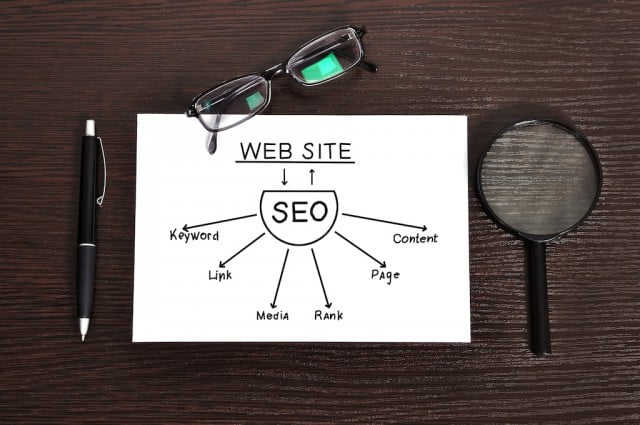In recent years, and after continuing updates to Google’s algorithm, there has been an increasing focus on content creation and marketing – and some business owners are raising the question if content can or should replace an SEO strategy.
In fact, with many of the old SEO “tricks” no longer working, many businesses realize the only way to get ranked is to focus less on gaming search engines and more on creating high quality content for the right keywords.
However, while the distinction between content marketing and SEO is becoming increasingly blurred, the truth is that the two never really could exist without one another – at least not in a sustainable way.
Business owners and marketers should never look at the question of content marketing OR SEO, but rather how does content marketing work for and with an SEO strategy?
Content Marketing Versus SEO
Let’s make the assumption for a moment that the goal for content marketing and SEO are the same – that is driving targeted traffic to websites via natural search and social media. (For now, this excludes other goals you may have with content marketing – such as building brand identity, thought leadership etc.).
Here’s a quick breakdown of the differences and overlaps between SEO and content marketing:
Content Marketing = Content Strategy + Keyphrase Research + Content + SEO + Social Media + Link building
SEO = Keyphrase Research + Content + On Page SEO + Social Media + Link building + User Experience (UX) + Technical
Key Differences and Overlaps
Content marketing incorporates content strategy. SEO, at least in the traditional sense, did not. Some SEOs of the past did do this, but the majority did not.
Content marketing, like all other forms of marketing, is only effective if there is a solid strategy that underpins it. In The Top 3 Reasons Your Content Marketing Plan Will Fail, I wrote about how not understanding who your target audience is, what their needs/wants are, or what kind of content do we need to serve them will ensure you content marketing will fall flat.
SEO incorporates link building, which content marketing may or may not do directly. While effective content can be a GREAT way to get unsolicited links back to your site, it is not necessarily a traditional link building practice. Links remain one the most important factors in SEO and when putting together a strategy to drive traffic to a website, link building must be taken into account. Good quality links remain extremely important in driving traffic to a website via natural search.
SEO also incorporates some more technical elements, unlike content marketing, such as User Experience (UX) and other technical factors. Some of the basics includes:
- URLs
- Headers
- Title Tags
- Meta Descriptions
SEO can also encompass technical elements of a page a user can’t see without looking at the source code:
- IP detection
- Site speed (read about how site speed effects your search rankings)
- 301 and 302 redirects
- HTTP headers
- Crawler access
- JavaScript
- Flash
UX factors such as web design, advertising placements, bounce rates etc. also have an impact on a site’s ability to rank in natural search. It’s likely that these will become more important as search engines seek to land users on quality websites.
It’s important to keep in mind that there’s little point having lots of good content and a good content marketing strategy if you do not understand and fix technical errors that show up in Google Webmaster Tools. Duplicate content, 301 redirects (not doing them properly), 401 errors, site download speed etc., will all have an impact on your website’s ability to rank well in search engines.
Conclusion
So, what does this all mean? Should you fire your SEO consultant and hire a content marketer?
The answer is NO.
While there remains big overlap between content marketing and SEO, the former will and can not replace the latter. Both are required to drive quality, targeted traffic to a website via organic search and social media. Content marketing incorporates SEO into its practice; however, they are not the same thing.
SEO has unique elements such as link building, UX and technical factors that are not used in content marketing, (and which most content marketers have a hard time understanding), but are key ranking factors in natural search.
That being said, content marketing will continue to be a very important one of the best ways to build an audience, establish your brand and thought leadership, and bring high quality search traffic to your site for key phrases related to your business.


